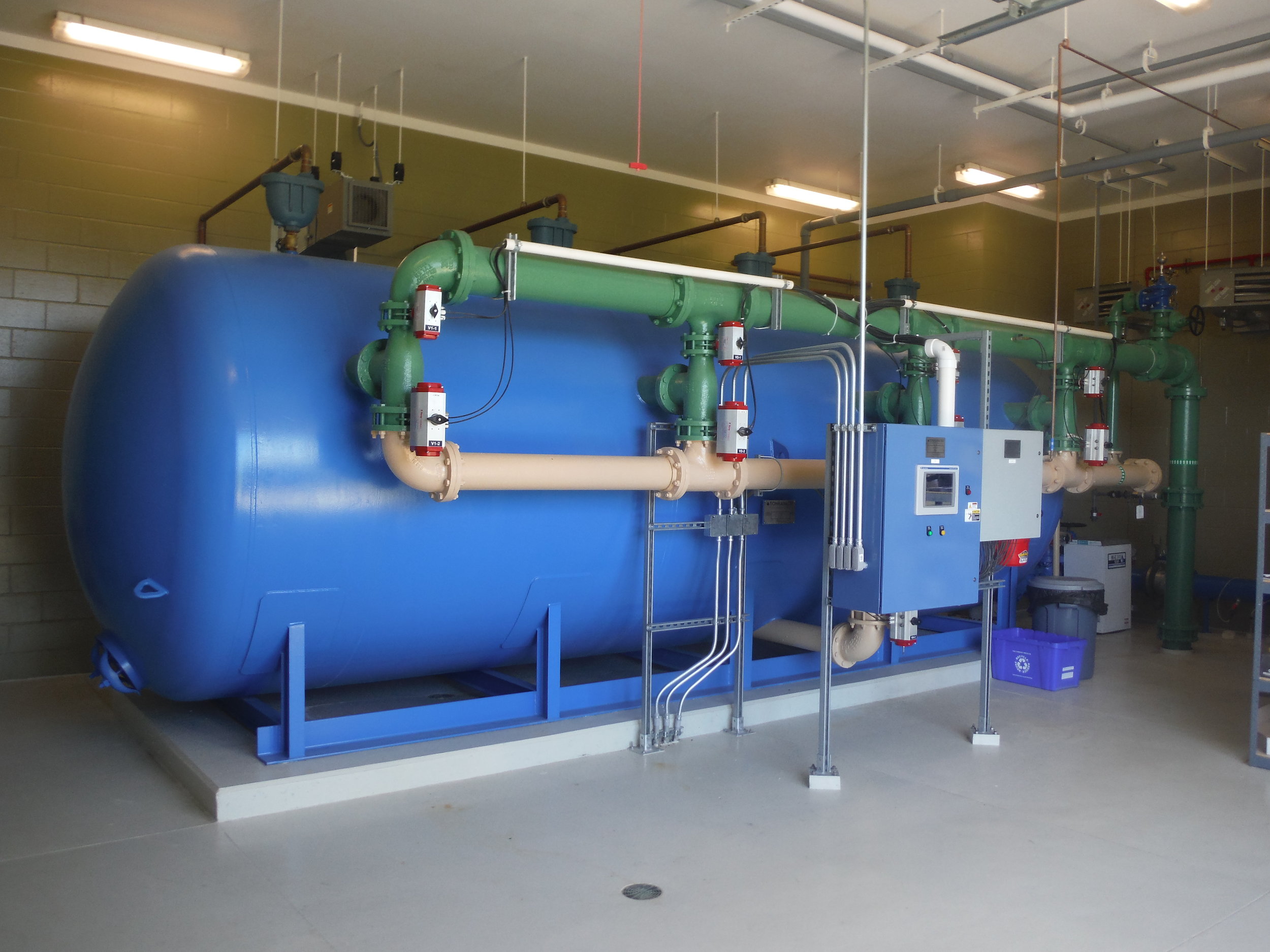Water pumped from the deep sandstone aquifer in Southeastern Wisconsin usually contains radium. This radionuclide occurs naturally. People drinking water containing a high concentration of radium are at increased risk of developing bone cancer.
Learn how R/M worked with the Village of Pewaukee to design an economical treatment system to remove radium from their groundwater.
In most cases, the water produced by a groundwater well is safe to drink. However, groundwater may contain substances which make the water unhealthy or, more frequently, either unpalatable or aesthetically disagreeable. Different treatment methods are used to treat different contaminants. In most cases, the goal of treatment is to remove all or most of the subject contaminant.
MS4. TMDL. NPDES. These acronyms (and many more) can sometimes make complying with municipal storm water regulations seem like an exercise in alphabet soup more than anything else. A variety of recent advances in ways of thinking and technology can simplify regulatory compliance.
The City of Peshtigo has experienced recent sewer system overflow events that have been partly due to high wet weather flows. R/M assisted in performing a smoke testing program as part of the City’s sewer system evaluation survey (SSES).
Some of the primary goals of CMOM programs are to protect public health, avoid basement backups, prevent sanitary sewer overflows, and protect the infrastructure investment. Municipalities place high emphasis on investigating private laterals in addition to the public sewers when they experience higher flows at their wastewater management facilities, sewers surcharge, or basements backup during wet weather events.






